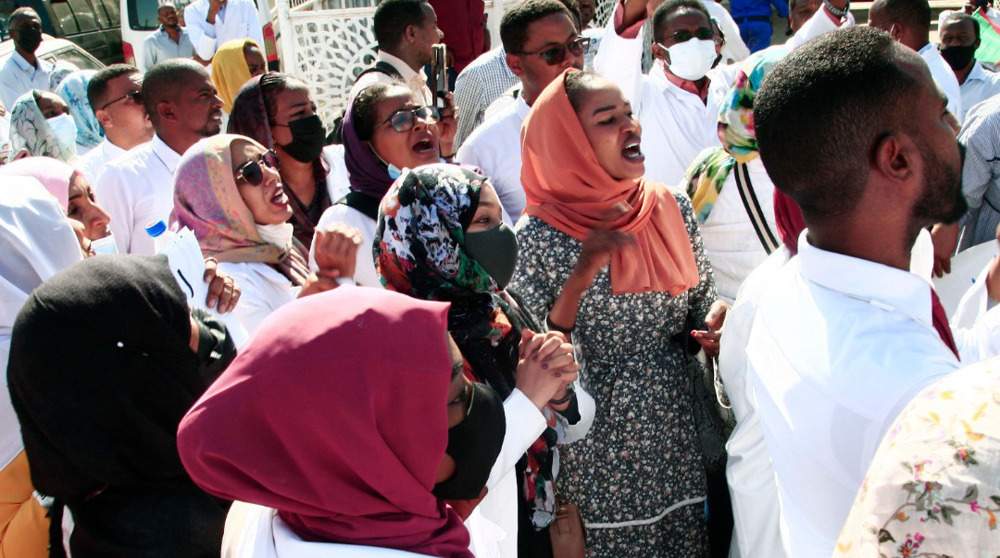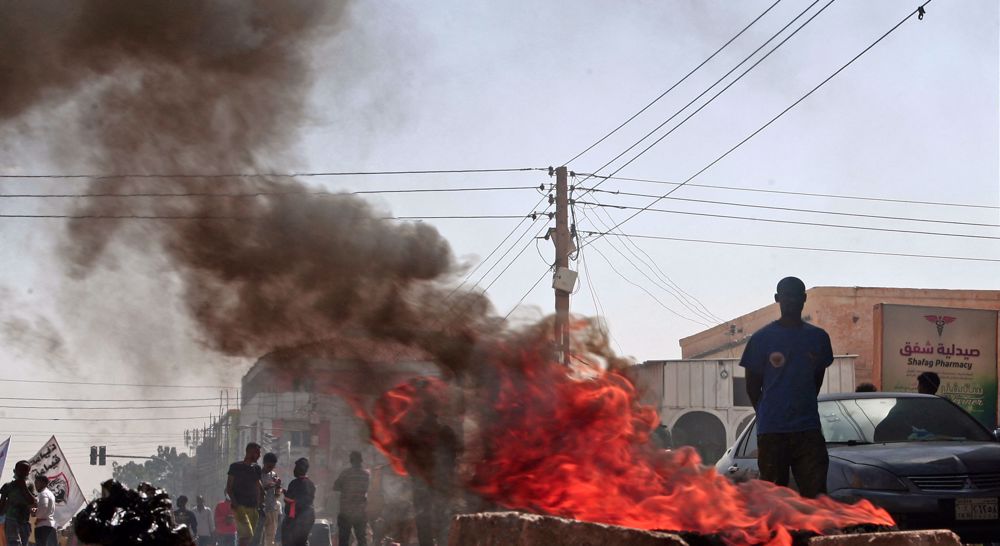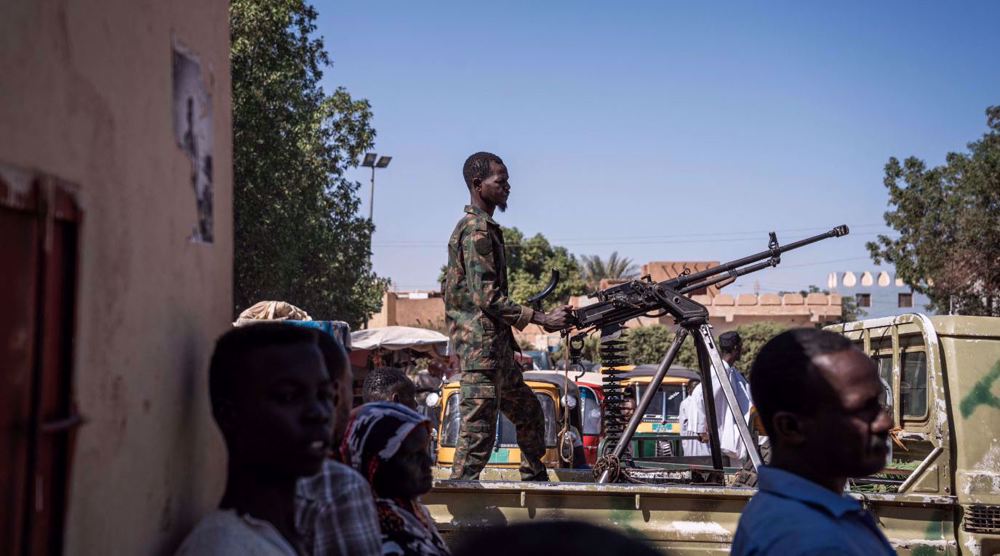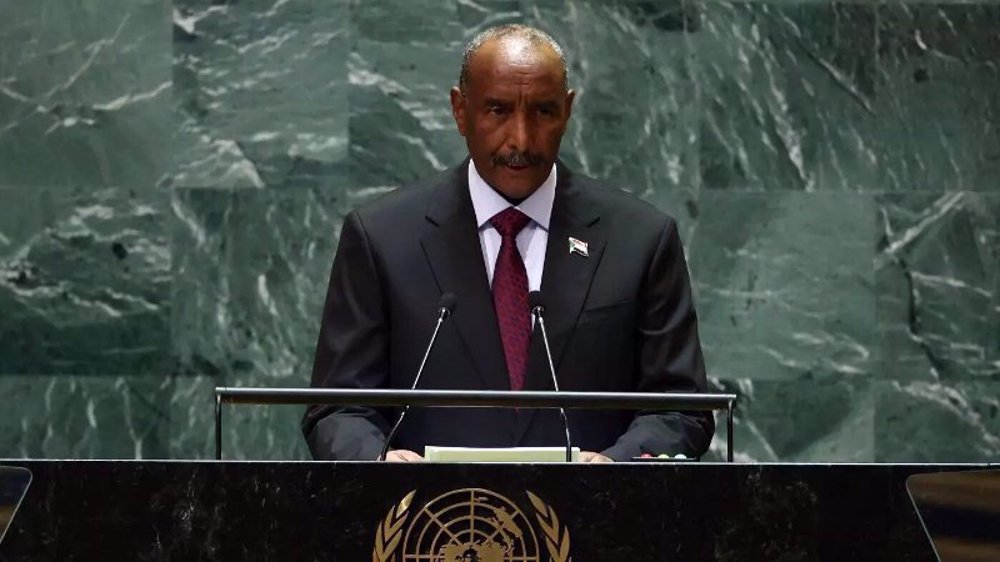Two killed in Sudan anti-coup protest as security forces crack down with tear gas, live rounds
At least two protesters have been shot dead during an anti-coup rally in Sudan’s capital, Khartoum, during a crackdown by security forces using tear gas and live shots.
The independent Sudanese Doctors' Central Committee said in a statement that one protester, who has not yet been identified, was “directly hit by a live bullet to the chest” during the rally on Monday. The other victim was hit in the head.
The latest death brings to 74 the number of anti-coup demonstrators killed in the crackdown on anti-junta rallies, medical sources said, adding that more than 2,000 others have been injured since the October coup. The casualties were mainly caused by gunshots and tear gas canisters.
More than two years ago, massive anti-government demonstrations hit Sudan. The main grievance was about economic woes. The protesters, youths for a large part, demanded resignation of then President Omar al-Bashir, who was ultimately deposed through a military coup in April 2019, after ruling over the country for three decades.
In August the same year, a transitional civilian-military administration was founded to run the country. However, Sudan's military chief and de facto leader Abdel Fattah al-Burhan staged a coup on October 25 and dissolved the fragile government and Abdalla Hamdok, the then prime minister, was detained and put under house arrest.
The military takeover infuriated the Sudanese and sparked international outcry, including from the UN Security Council. Other civilian leaders were also held in military detention.
Hamdok was later released and on November 21 signed a power-sharing deal with the Burhan-led junta, according to which the former would continue his career as prime minister, all political prisoners detained during the coup would be released, and a 2019 constitutional declaration would be the basis for a political transition.
According to the deal, July 2023 has been set as the date for Sudan's first free elections since 1986. The coup, however, triggered new waves of ongoing protests across the country, demanding an all-civilian rule with no participation of the military.
On January 2, Hamdok resigned, leaving the military fully in charge. He said Sudan was at a “dangerous crossroads threatening its very survival.”
On Monday, security forces attacked protesters to block their march toward the presidential palace. The rally met with tear gas, live shots, stun grenades, and water cannons spraying red water as protesters stood some 1.2 kilometers away from the palace.
In Khartoum’s twin city of Omdurman, security forces, with a heavy presence, also fired tear gas at protesters. Reports also said similar protests were held in the cities of Wad Madani, El Fasher, Shendi, and Elobeid.
All protesters were calling for civilian rule and demanding justice for those killed in the crackdown since the October coup. “No, no to military rule,” and, “Civilian (rule) is the people's choice” were chanted by the protesters in Wad Madani.
The African country, home to 45 million people, is also dealing with a severe economic crisis and an inflation reaching 400 percent.
D-8’s role in Iran’s economy after Cairo summit
China slams US as ‘war-addicted’ threat to global security
China ‘firmly opposes’ US military aid to Taiwan
VIDEO | Press TV's News Headlines
President Yoon Suk Yeol to be removed from office
At least 19 Gazans killed by Israeli airstrikes since dawn: Medics
Leader: Iran neither has nor needs proxy forces
US fighter aircraft shot down ‘in friendly fire’ amid aggression on Yemen











 This makes it easy to access the Press TV website
This makes it easy to access the Press TV website